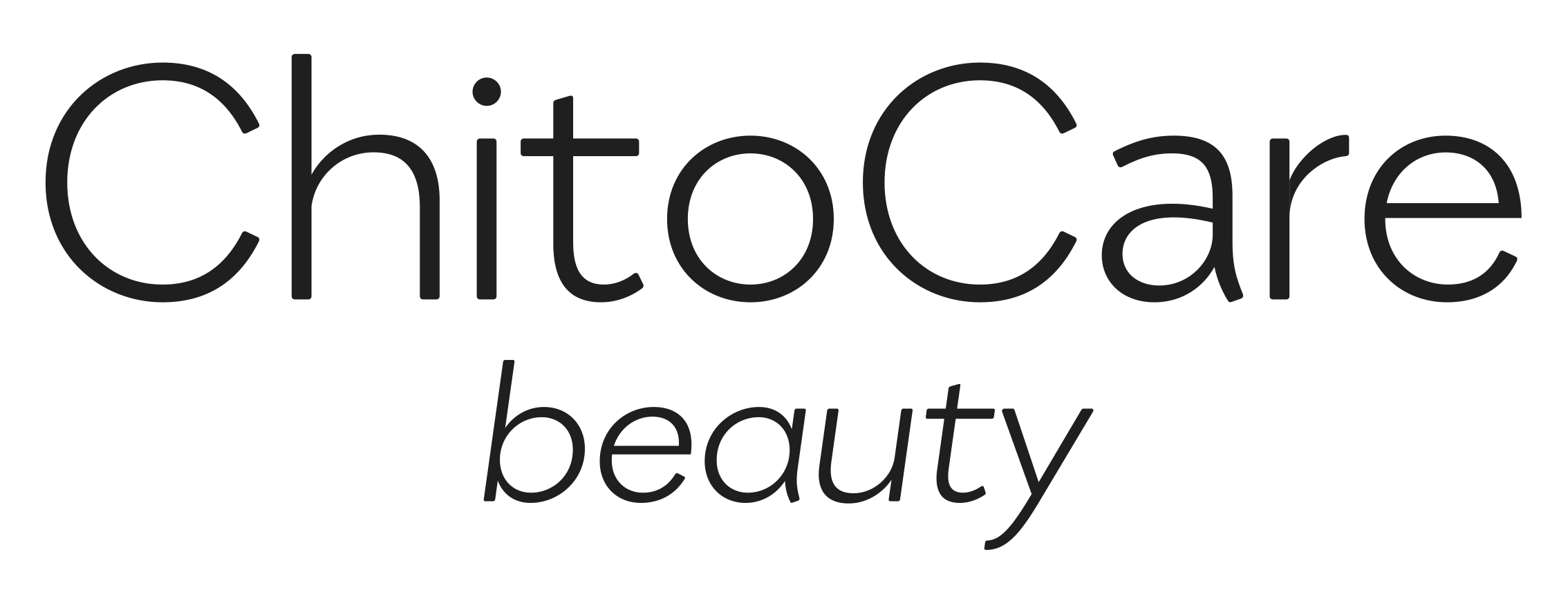
Why Zinc Is the Super-Nutrient Your Skin Needs
Zinc is a multi-tasking mineral that is crucial to our overall well-being, including skin health. We look at how zinc supports the skin and how ChitoCare Beauty can help you add this chemical element to your skin care routine.
Zinc is an essential trace mineral found in nature and present in human organs, tissues, fluids and cells throughout the body. Most people know zinc from common cold medication, cough sweets and its significant role in child growth. Even though zinc is not synthesized naturally by the body, it is required for a vast amount of important cellular functions, including over 300 enzymatic processes.
It is vital in everything from cell growth and division to aiding the synthesis of DNA and proteins like collagen. It supports reproductive development, fertility, blood clotting, and thyroid and metabolic functions. It also aids wound healing, prevents inflammation, promotes hormone and eye health, and boosts immunity by fighting off bacteria and viruses.
Why zinc is crucial for skin health
When it comes to our skin, zinc delivers a number of important benefits, from restoring and soothing to protecting and healing. However, the body does not naturally store zinc so, to make the most of this powerful mineral, you must consciously incorporate it into your daily life. Let’s take a closer look at how zinc can benefit your skin.
Anti-inflammatory
As zinc supports the body’s immune system, it can be critical in preventing inflammation and accelerating wound healing. This is especially significant for skin that suffers from acne breakouts, rosacea and eczema. As acne can often be associated with a zinc deficiency, skin care products and supplements containing zinc can help regulate oil secretion, preventing pores from clogging and limiting acne breakouts. In addition, zinc helps soothe redness, irritation and inflammation caused by pimples.
Anti-aging
One of zinc’s many functions in the body is to aid the production of proteins such as collagen fibers and elastin. These proteins are what keep skin firm, supple and hydrated. By boosting their production, zinc prevents skin from developing fine lines, wrinkles, sagging, dryness and other signs of aging. By promoting healthy cell production, supplements containing zinc, like ChitoCare Beauty Hair, Skin & Nails, help skin to remain healthy, smooth and supple.
Antioxidant action
Zinc supports the immune system in many ways, including antioxidant action. Dietary supplements and skin care products containing zinc not only provide the body with antioxidants that fight free radicals, they also support the skin’s natural barrier function. Free radicals notoriously break down collagen and elastin fibers and cause intracellular oxidative stress. Zinc, therefore, helps protect the skin from premature aging and conditions such as dryness, roughness, wrinkles, fine lines and soreness.
Improved skin tone
As zinc works to increase enzymes and proteins that fight bacterial infections, it can help to regulate and improve skin tone for a bright and more even complexion. Zinc also helps to produce new skin cells, promoting the skin’s natural healing process. It helps to prevent hyperpigmentation, dark spots, texture changes, scarring and sun damage, improving overall skin tone.
Zinc deficiencies
Our skin is the largest organ in the body and contains relatively high amounts of zinc – about 5%, primarily found within the epidermis layer of the skin. Because the skin is used to this amount of zinc, even a mild deficiency can quickly lead to a series of skin problems, such as rough, cracked or dry skin, acne, rashes, and slower wound healing due to impaired collagen production, and other health issues, like slowed growth, hair loss, low insulin levels, diarrhea, nausea and more.
Zinc deficiencies are increasingly common, especially among vegans and vegetarians, people with “leaky gut” syndrome, heavy drinkers, people who suffer from eczema and melasma, and people with Vitamin A and D deficiencies. The World Health Organization (WHO) has estimated that about 30% of the global population has a zinc deficiency, affecting about two billion people in the developing world and associated with many diseases.
The most common cause of zinc deficiency is chemical farming depleting crops – and subsequently our diets – of their natural zinc contents. As excess zinc is not stored in our body for very long, it is important to regularly consume foods high in zinc. Foods high in zinc include red meat, poultry, beans, nuts, whole grains, dairy products such as yogurt, milk and cheese, and seafood such as crab, lobster and oysters. In fact, oysters contain more zinc per serving than any other food.
How to incorporate zinc into your skin care routine
Our body only requires a tiny amount of zinc to function properly, hence why it is called a “trace” mineral and why it is not difficult to maintain sufficient daily levels. The recommended daily amount of zinc for men is 11 mg, for women 8 mg, while pregnant or breastfeeding women typically require 11-12 mg per day.
It has been established that healthy skin comes from nourishing your body and skin from both the inside and out. This can be achieved by feeding your body with foods and supplements high in zinc, and by applying zinc-incorporating creams and serums externally. By ensuring your zinc levels are adequate, you are boosting your overall well-being and your skin health simultaneously.
Add ChitoCare Beauty Hair, Skin & Nails to your diet to ensure your skin is getting the amounts of zinc necessary for a healthy and youthful complexion. Packed with fibers, algal minerals and vitamins, including geothermal silica, collagen, marine chitosan and zinc, this blend of natural ingredients will provide healthier skin, stronger nails and luscious hair.


